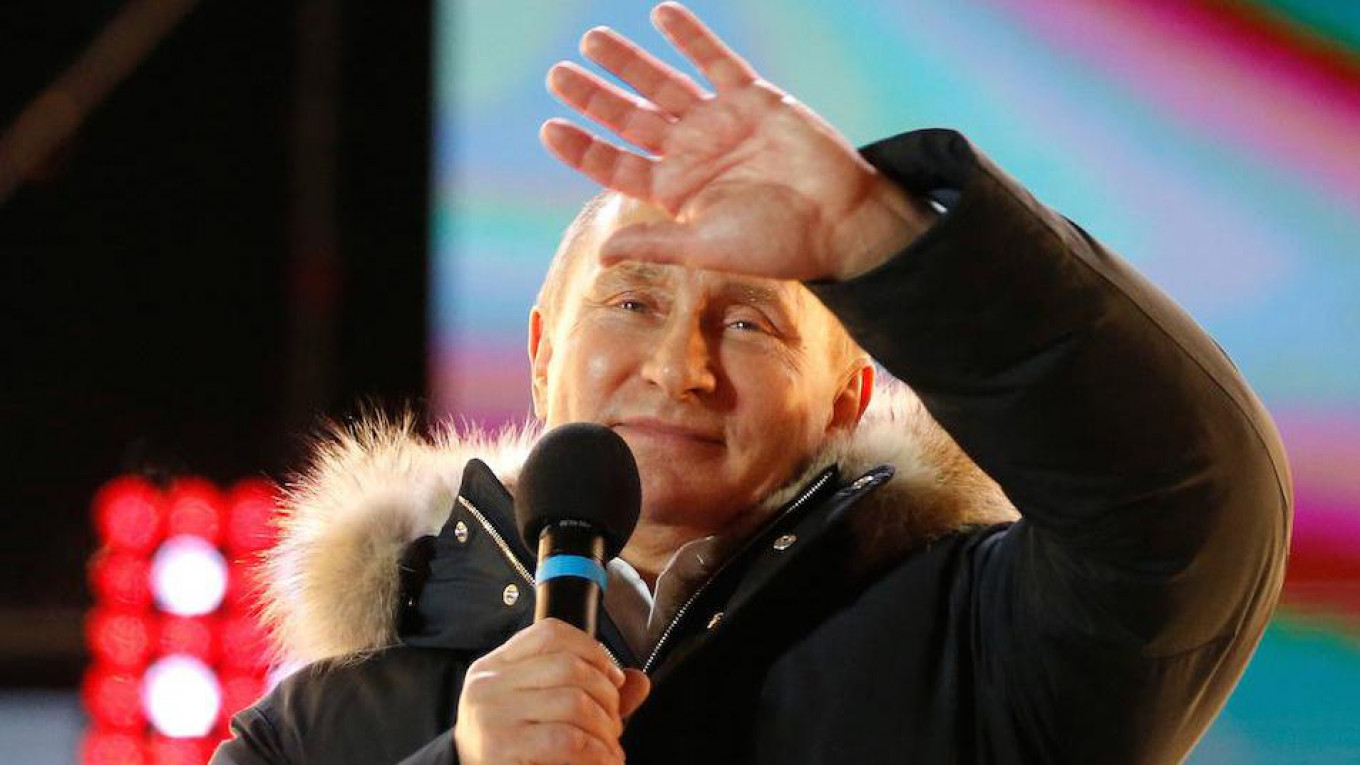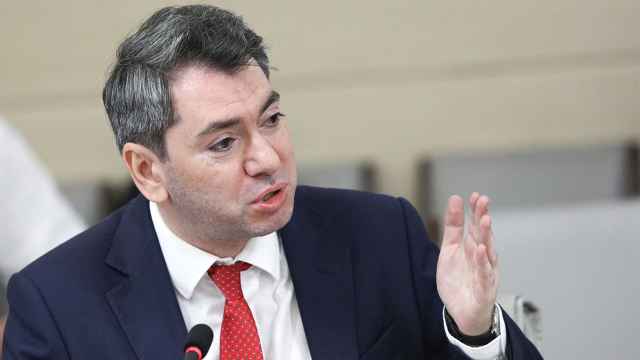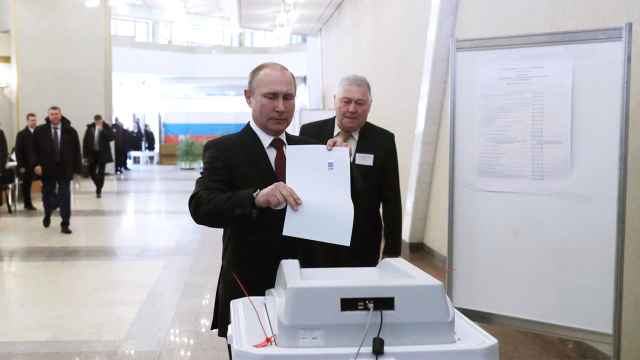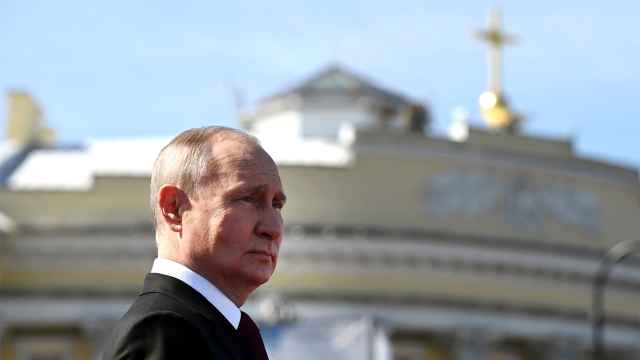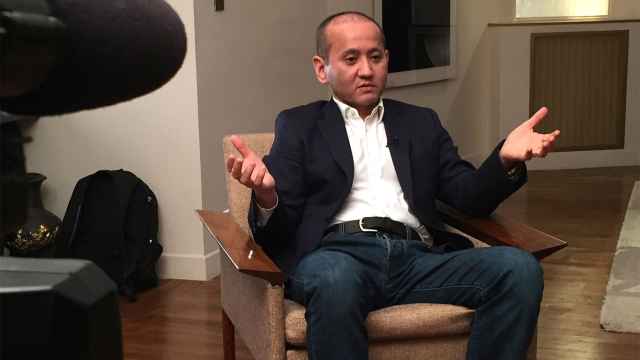With the victor all but certain before the vote, the only surprise was the margin of victory.
On Sunday, President Vladimir Putin was re-elected to six more years with a record number of ballots, making him the longest-serving Russian leader since Josef Stalin.
As political analysts digested the outcome, some speculated that coupled with a faltering opposition, it could allow Putin to remain at Russia’s helm beyond 2024.
“He beat predictions by 10 percent,” journalist and political commentator Konstantin Gaaze told The Moscow Times. “Why are we talking about just another 6 years? Why not 12? Or even 30?”
With the bulk of the votes counted by Monday afternoon, Russia’s Central Election Commission gave Putin 76.66 percent of the ballot.
Although independent European observers said that the election was marred by voters being pressured, analyst and statistician Sergei Shilikipin noted in a Facebook post that falsifications were at a “record low.”
Russia’s constitution limits presidents to two consecutive terms, meaning Putin would not be allowed to run in 2024 unless he amends the Constitution. Another option would be to pass on power to a stand-in, while continuing to pull the strings behind the scenes.
But during his re-election party on Sunday evening at Moscow’s Manege Square near the Kremlin, Putin rebuffed speculation that he would run again in 2030.
“I think it’s slightly ridiculous what you say,” Putin told a reporter. “What, am I supposed to sit here until I am 100? No. No!”
Gaaze, however, suggested that, with such wide support, Putin might even take a page out of the book of Chinese President Xi Jinping, whose parliament recently abolished presidential term limits, keeping him in power indefinitely.
“Who will be the successor who can fill the vacuum that Putin leaves behind?” Gaaze said. “Who will be the successor that takes on the Americans and the West and comes out stronger?”
“The electorate has given Putin a mandate to do whatever he wants,” he added.
That mandate, though, is unclear going into the May 7 inauguration according to Andrei Kolesnikov of the Carnegie Moscow Center.
“During the campaign, there was minimal discussion about what his next term would look like,” Kolesnikov said in a phone interview. “But clearly the electorate is not looking for change or modernization. They want to preserve the status quo, so things don’t get worse.”
Judging by Putin’s previous term that means continued tightening of freedoms, an increase of government control in the business sphere and heightened confrontation with the West.
And if the president is thinking of a possible successor, he won’t “show his cards” because he can’t “look like a lame duck,” adds Kolesnikov.
In addition to helping tighten Putin’s grip on power, Kolesnikov added, the election exposed a largely impotent opposition movement, weighed down namely by its inability to unite.
The only potential threat to Putin had been Alexei Navalny, who over the past year had organized protests against corruption and political fraud in more than 80 Russian cities. But after he was barred from running for office due to a prior criminal conviction his supporters say was politically motivated, he called for a boycott of the election. He also did not give his full backing to any of the opposition candidates.
“If in the past the opposition was divided because of personal differences and nuances in political programs,” Kolesnikov said, “now the schism seems to be starkly between those who are okay with being accepted by the Kremlin and those who think any acceptance by the Kremlin is being on the Kremlin’s side.”
That schism was on full display Sunday evening when Sobchak showed up at Navalny’s headquarters and in a live online broadcast asked him to join her newly announced party with former Duma deputy Dmitry Gudkov.
Navalny refused. He also called her a “tool of the Kremlin,” and, on Monday, told all of his critics “to go to hell.”
“He will be trying to figure out what he can do next,” Kolesnikov said. “Going forward he might continue to spark street protests, but at some point that will simply turn into routine.”
“Still, he is still the most recognizable opposition politician,” Kolesnikov added, “so we can’t forget about him just yet.”
As for Sobchak’s new party, analysts were quick to doubt its potential for success.
“The Kremlin also allowed Mikhail Prokhorov to start a party,” said St. Petersburg-based political analyst Grigory Golosov, referring to the Civic Party platform set up by the billionaire candidate of the 2012 presidential elections. “But once they became unhappy with him, they ripped the party away.”
Others pointed to yesterday’s public argument between Sobchak and Navalny as indicative of the opposition’s weakness.
“They are visibly demoralized by Putin’s showing and are not sure how to respond,” said Alexei Chesnakov, a former Kremlin administration member turned political consultant. “The results showed they have no ability to pressure the administration into taking them seriously.”
If anything will eventually topple Putin’s regime, former Kremlin speech writer Abbas Gallyamov believes it will not be an opposition movement, but the confidence boost given to Putin by the election’s outcome.
“If he had won with 55 percent of the vote, maybe he would have started to pay attention to our country’s economic degradation,” Gallyamov said by phone. “It could have been a wake-up call.”
“The Soviet Union fell this way, too, focusing on a fight with the West rather than its internal economic issues,” Gallyamov added. “Maybe it will take six years, or maybe 10. But we are heading in that direction.”
A Message from The Moscow Times:
Dear readers,
We are facing unprecedented challenges. Russia's Prosecutor General's Office has designated The Moscow Times as an "undesirable" organization, criminalizing our work and putting our staff at risk of prosecution. This follows our earlier unjust labeling as a "foreign agent."
These actions are direct attempts to silence independent journalism in Russia. The authorities claim our work "discredits the decisions of the Russian leadership." We see things differently: we strive to provide accurate, unbiased reporting on Russia.
We, the journalists of The Moscow Times, refuse to be silenced. But to continue our work, we need your help.
Your support, no matter how small, makes a world of difference. If you can, please support us monthly starting from just $2. It's quick to set up, and every contribution makes a significant impact.
By supporting The Moscow Times, you're defending open, independent journalism in the face of repression. Thank you for standing with us.
Remind me later.


